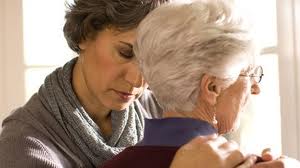 We all lose sleep sometimes, because we all can carry to bed with us the worries about the concluding day or the day ahead. I have been taking an informal poll on what keeps caregivers awake, and some consistent themes emerge. I am going to list out what I have been hearing along with some suggestions to help you get a better night’s rest if you are a caregiver to an older loved one or other special needs individual.
We all lose sleep sometimes, because we all can carry to bed with us the worries about the concluding day or the day ahead. I have been taking an informal poll on what keeps caregivers awake, and some consistent themes emerge. I am going to list out what I have been hearing along with some suggestions to help you get a better night’s rest if you are a caregiver to an older loved one or other special needs individual.
When you are on call as a caregiver so much of the time, it is hard to simply “turn it off” at night. Being a caregiver has been termed the “36-hour day” by at least one author. Everyone needs to be able to clock out of the job to rest and refresh. Set a quitting time for your caregiver duties, and as a way to signal the end of your shift, consider writing a list of what you will do tomorrow as you pick up where you left off. By making the list, you will not be obsessing about it as you try to fall asleep, and you will not have to think about what you will do when you rise. It is ready to pick up, and you need not give it any more thought.
You end up doing everything because it takes more time to explain it to someone else than it does to simply do it yourself. It really is a problem of delegating. Consider partnering with another caregiver. You can take care of their loved one at certain times in exchange for their help in taking your mom or dad along with them for designated times. Caregivers will be quick learners for one another, and they really do understand that it is not “babysitting.” Also, make a list of what others can do for you, like shoveling your walkway, cooking a meal or shopping for you.
You always think you should be doing more. Guilt can be a very unforgiving motivator, and I believe that all caregivers have something to learn from Bruno Bettelheim who wrote about “The Good Enough Parent.” Turning his advice around just a bit, the caregiver’s role is not to make an ideal parent or loved one out of the person for whom you are the caregiver; it is to simply help your loved one be what they wish to be and for you to accept that as “good enough.”
Feelings of isolation or even depression can haunt a caregiver. It comes back to one of my principal tenets of caregiving: You will take better care of someone else if you are taking care of yourself. Seek out respite care for your loved one so that you can meet with friends for coffee or just a break from your routine. And do not hesitate to seek the counsel of a cleric or professional if the blues become more than just a down day. You deserve some help in coping with what is a stressful job.
Charlotte Bishop is a Geriatric Care Manager and founder of Creative Case Management, certified professionals who are geriatric advocates, resources, counselors and friends to older adults and their families in metropolitan Chicago. Please email your questions to ccbishop@creativecasemanagement.com.



